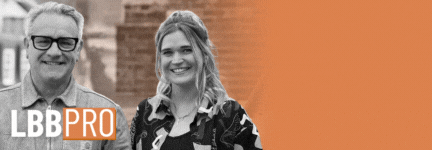
Bossing It: Steering the Ship Through the Storm with Abe Silver

Abe Silver is a driven entrepreneur and passionate musician with a rich cultural background as a first-generation Filipino American. His lifelong dedication to music has shaped his perspective on the power of art to transcend boundaries and connect people. After attending university in the United Kingdom, he opened CornerStore in 2018 with Jacob Zacharia and Kerim Wilhelm.
As an entrepreneur, he has successfully navigated the challenges of building and managing businesses, honing his skills in leadership and strategic planning through founding CornerStore. He remains deeply committed to fostering diversity and inclusivity within the commercial music industry, aiming to break down barriers and create opportunities for underrepresented artists.
LBB> What was your first experience of leadership?
Abe> In high school, I was selected to be a member of a group that pushed forward green initiatives and helped secure funding and design for a new courtyard. Even though I was only one member on a small panel, this was one of the first times my thoughts and ideas were used to drive decisions.
LBB> How did you figure out what kind of leader you wanted to be – or what kind of leader you didn’t want to be?
Abe> Being named after a president helped set an example of what kind of leader I’d want to be...
All politics aside - it seems to me that leaders fall into two categories (at least in media) the leader who is kind, understanding, and wants the best for all people following them, or the leader who wants complete authority, and seeks power over all. I’d rather be the first kind.
LBB> What experience or moment gave you your biggest lesson in leadership?
Abe> During my first year at the Cannes Lions, I attended many talks centred around leadership. One lesson I walked away with was that a good leader knows when a void needs to be addressed. Having stepped into a leadership role at CornerStore, I’ve tried to be as keen as possible in ensuring that the team members are creatively fulfilled and that we are all pushing in the right direction together.
LBB> Did you know you always wanted to take on a leadership role? If so how did you work towards it and if not, when did you start realising that you had it in you?
Abe> When I was a youngster, my mother downloaded and played an RTS gamed called “Warcraft II” on the family computer. I fondly remember playing this game as a kid, building bases, managing economy, and coordinating troops with different skill sets was my first inadvertent exposure to leadership.
LBB> When it comes to 'leadership' as a skill, how much do you think is a natural part of personality, how much can be taught and learned?
Abe> Leadership is a role that needs to be stepped into. There are fundamental lessons and leadership skills that can be taught, but there are also intangibles that can’t be taught. Confidence, the “hunch”, and ability to have the vision to lead towards are some examples of intangibles.
LBB> What are the aspects of leadership that you find most personally challenging? And how do you work through them?
Abe> “Imposter Syndrome” is a thing that many creatives deal with. As a leader, this feeling is amplified, all while people depend on you to make the right decisions! Being transparent, finding good mentorship, and always being vocal about how decisions are made helps alleviate this feeling.
LBB> Have you ever felt like you've failed whilst in charge? How did you address the issue and what did you learn from it?
Abe> There are plenty of times that the wrong call is made. Part of it is rolling with the shots, and the second part is being able to acknowledge and work through what exactly went wrong. Self-reflection is very important here.
LBB> In terms of leadership and openness, what’s your approach there? Do you think it’s important to be as transparent as possible in the service of being authentic? Or is there a value in being careful and considered?
Abe> Too much of anything is still “too much” - I think that transparency is one of the most important factors a good leader should implement. There is a certain extent to which transparency can become over communication. Usually, this plays more into intangible leadership skills.
LBB> As you developed your leadership skills did you have a mentor, if so who were/are they and what have you learned? And on the flip side, do you mentor any aspiring leaders and how do you approach that relationship?
Abe> I’ve had different mentors throughout my life, some through programs and some through personal connections. They’ve all helped me understand that everyone’s journey is unique and to always consider the end goal!
Currently, I do not have a mentor / mentee that I meet with regularly but would love to find a new one!
LBB> In continually changing market circumstances, how do you cope with the responsibility of leading a team through difficult waters?
Abe> Steering the ship through a storm is when your iron will be tested. Being a new company in this space, it’s been a mix of getting to speed at the same time as difficult times fall upon the industry as a whole!
Keeping spirits high, always considering the end goal, and understanding that we’re all here to work towards similar things helps keep everyone in check when items get rough.
LBB> As a leader, what are some of the ways in which you’ve prioritised diversity and inclusion within your workforce?
Abe> Language in the workplace is very important. I hate it when things get to “bro-y”, and want to foster a community of curiosity and thoughtfulness/mindfulness. I review resumes of candidates who hail from a different ethnic background than the majority of our current workforce and prioritise getting them in for an interview!
LBB> How important is your company culture to the success of your business? And how have you managed to keep it alive with increases in remote and hybrid working patterns?
Abe> Company culture is another big lesson that was taught to me in Cannes. The team has recently been working on developing a strong culture with principles, and tenants. Cultures work when there’s mutual respect, and rules that are followed. Not an easy thing to keep consistent, but it is an effort that has to come from all of us!
LBB> What are the most useful resources you’ve found to help you along your leadership journey?
Abe> YouTube (tons of great video essays on whatever topic you’re interested in, I personally like Chris Do), books (principles by Ray Dalio, Good to Great by Jim Collins, Outliers by Malcolm Gladwell to name a few) and a strong support system (my friends and family)













